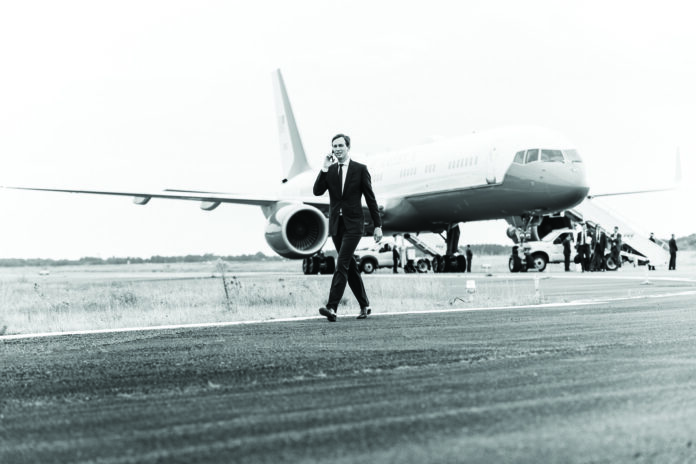In his new book, Breaking History, Jared Kushner gives us his take on recent American and world history from one of the loftiest vantage points possible: that of special adviser to the president of the United States. I was recently able to speak with Jared about his experiences as well as his book, thanks to Ami’s White House correspondent Jake Turx.
Of course, Jared’s perspective is not just that of an observer or even an adviser. He was deeply involved in the development and implementation of almost every major policy achievement of his father-in-law’s presidency.
Jared was one of the architects of the Abraham Accords, which changed Israel’s relations with the Arab world in a single stroke. He helped make Operation Warp Speed the most successful vaccine development in history in the face of a global pandemic. He helped renegotiate the NAFTA trade agreement with Mexico and Canada, turning it into the USMCA and radically altering US economic advantages in North America and beyond. He shepherded massive criminal justice reform through the processes that brought it to President Trump’s desk.
During all of these efforts and others, Jared and his wife, Ivanka, along with President Trump, weathered vicious opposition not only from the Democrats or even the Republicans in Congress, but also from within the White House itself, where backbiting and sniping were a daily hazard. Nonetheless, Jared and Ivanka were able to assist President Trump in achieving unprecedented successes.
Jared’s identity as an Orthodox Jew was an important component of his view of politics, and his own experiences—including his father’s imprisonment—informed his focus on various policies, such as his strong promotion of criminal justice reform. Utilizing these concerns as a springboard, he created better lives for all Americans and for many others around the world, which we touched upon during our conversation.
I had the opportunity to peruse your book, Breaking History, and it’s a fascinating read. I’m sure you could have written volumes about your experiences in the White House, as well as your thoughts about them. Reducing everything to such a small volume must have been a challenge.
Yes. The original draft was almost twice the size, and I had to cut it down. I wanted people to get a feel for the experience, but I also wanted them to be able to read it easily. I left a lot of history on the cutting room floor, but I felt it was important to make it something that people could enjoy while getting the real essence of the story and a lot of very important details.
You referred to “the real essence of the story,” but there are so many stories. What do you consider to be the story?
That’s a funny question because you’re right, there are a lot of stories. I mean that I wanted to show the journey I went through as someone who had a lot of unusual experiences. Obviously, the world around me presented both challenges and opportunities, and I tried to learn from the former and make the most out of the latter and hopefully get things done. I found myself in some very high-stakes situations and very consequential positions, and the book relates how I tried to do my best. Everything is a continuation of what precedes it. Everyone has a unique story, and I wanted to share mine.
What I find particularly intriguing is that you were a real estate entrepreneur, meaning that you set your own goals and rules and followed them. Being in an environment like Washington, DC—and you described some of the infighting and challenges you faced there—seems like the exact opposite.
I think that’s right, but everything that happened before helped prepare me for what came next, even if it wasn’t intentional. There have been a lot of different chapters in my life, but part of living an interesting life is knowing how to keep an open mind and make adjustments along the way. I didn’t try to tell people what to think. I just tried to tell the story and let people draw their own conclusions from it.
You open the book with your father’s incarceration, which you candidly describe as a very painful chapter in your life. I’m sure that period impacted your life to the extent that it led you to get involved in prison reform, but did it affect you in other ways as well? The fact that you chose it as an opener leads me to believe that there is more here than what you are allowing us to see.


























